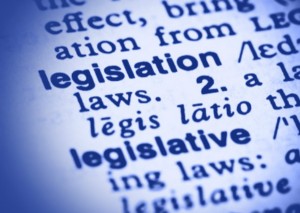It’s Official: Key Juvenile Focused Bills Now Law in Georgia
 Some key juvenile justice-related bills passed in Georgia’s 2011 legislative session are now law.
Some key juvenile justice-related bills passed in Georgia’s 2011 legislative session are now law.
The juvenile “Good Behavior Bill” the Runaway Youth Safety Act and the Human Trafficking Bill officially went into effect July 1st.
HB 373, known as the “Good Behavior Bill,” gives children who achieve a track record of good behavior and academic success in Georgia’s Regional Youth Detention Centers (RYDCs) and Youth Development Centers (YDCs) a chance to substantially reduce their time in custody. The measure, backed by the Council of Juvenile Court Judges, also gives juvenile court judges more discretion.
Key provisions in the law include:
Allows judges to review the sentences of designated felons who have served part of their terms for consideration for early release.
A motion can only be filed after the child has served a year in custody and cannot be re-filed more than once a year.
Good behavior and academic achievement weighs heavily in the child’s favor.
DJJ makes recommendations, but the juvenile court judge assigned to the case has the final say.
The victim and prosecuting attorney are notified within 14 days of the child’s scheduled hearing date. All victims will have the opportunity to participate in the child’s court hearings.
The Runaway Youth Safety Act allows homeless shelters to provide emergency housing and services to runaway children. Its passage also keeps facilities that serve runaways from no longer violating two state laws: contributing to the unruliness of a minor and interference of custody of a parent, so long as staffers either contact a parent or file an abuse report within 72 hours.
Key components of the measure include:
Allows shelters to care for the child up to three days as long as they are efforts to reunite the child with their parents or guardian.
Requires shelters to be registered and follow certain best practices in regards to child welfare.
Some advocates say it keeps those who are providing substitute care accountable for the care rendered.
Atlanta is a known hub for human trafficking and HB 200, toughens the penalty for sex traffickers and seeks to endow victims with more protective rights.
Key provisions in the “sex trafficking bill” include:
Provides an expanded definition of “coercion” in the human trafficking statute, to include causing or threatening financial harm.
Prohibits defense by blood relation – such as parents exploiting their children – or by marriage – such as a husband “selling” his wife.
Significantly beefs up penalties for human traffickers who target minors. If the victim is at least 16 but less than 18 years old, the crime is a felony and punishable by 5-20 years in prison and a fine of $2,500 to $10,000. If the victim is under 16 years old, the crime is a felony and punishable by 10-30 years in prison and a fine of up to $100,000.
Treats those in sexual servitude as victims, not criminals, by offering them recovery under the state crime victim’s fund.
Provides an affirmative defense for victims who come forward with the sexual crimes of prostitution, sodomy, solicitation of sodomy and masturbation for hire, if the defendant was being trafficked for sexual servitude.
Allows the state to seize any real or personal property that a trafficker used for, or bought with the proceeds of the crime.
Requires law enforcement agencies to receive training on how to relate to human trafficking victims.
Newsfeed Archives
- November 2024
- October 2022
- June 2022
- May 2022
- February 2022
- January 2022
- December 2021
- November 2021
- August 2021
- July 2021
- May 2021
- April 2021
- February 2021
- January 2021
- December 2020
- October 2020
- August 2019
- August 2018
- May 2016
- September 2014
- April 2014
- December 2013
- April 2013
- August 2011
- July 2011
elsewhere
- An interview with Karlan Sick, Board President
- BOOKS CAN HELP INCARCERATED TEENS SUCCEED
- Books Through Bars
- Distribution to Underserved Communities Library Program
- Juvenile Justice Information Exchange
- Life Lessons Through Literacy for Incarcerated Teens
- Passages Academy Libraries
- Passages Academy Schools
- Read This
- What's Good in the Library?
- Women and Prison




